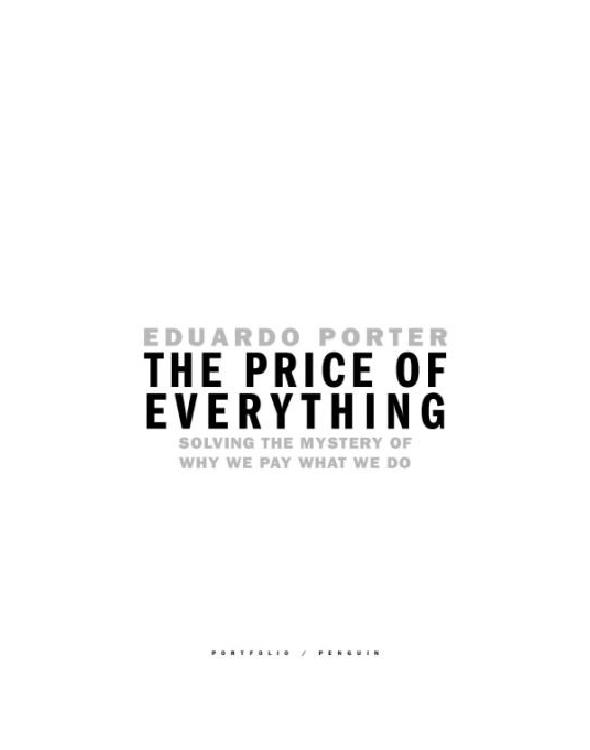
The Price of Everything
And the Hidden Logic of Value
کتاب های مرتبط
- اطلاعات
- نقد و بررسی
- دیدگاه کاربران
نقد و بررسی

November 1, 2010
A sweeping examination of the relationships between humans and money.
New York Times editorial board member Porter is fascinated by what individuals pay for tangible commodities. After a chapter devoted to consumer goods, the author covers a wide range of topics, examining what people in the United States and other societies believe a human life is worth, how to value happiness, whether a free lunch really exists and how to rethink capitalist economies when predictable market behaviors become out of kilter. The author finds that husbands pay for brides in some cultures to maximize reproductive success. In other cultures, parents abort female fetuses to avoid the costs of marrying off their daughters. Porter also asks why it has evolved that employers pay workers rather than enslave them, and why many wealthy individuals believe their most valuable commodity is scarce free time. Given the power of pricing to change behaviors, the author is surprised that governments generally avoid price manipulations to control the behaviors of the governed. He marvels at the differences between the U.S. government and various European governments regarding the price of gasoline for motorized vehicles. In the United States, relatively cheap gas prices lead to urban sprawl and dangerous air-pollution levels, while in Europe, higher taxation on consumer purchases of gas has helped control sprawl and pollution. Porter writes that global warming is partly a failure of polluting nations' economies to place a proper price on the endowments of nature. Failing to determine socially conscious prices demonstrates a lack of will, not a lack of science.
A sometimes abstract, sometimes philosophical and sometimes anecdotal mélange of chapters not always easy to follow, but almost always interesting.
(COPYRIGHT (2010) KIRKUS REVIEWS/NIELSEN BUSINESS MEDIA, INC. ALL RIGHTS RESERVED.)

December 15, 2010
Business journalist and New York Times editorial writer Porter delivers a popular explication of how supply and demand affect prices. In vignettes about all manner of transactions, from coffee sales to marriage dowries to home values, he disputes notions that prices settle out as rational correlations of supply and demand. All sorts of emotional factors are involved, which enliven Porters stories as he explores divergent behaviors of upper-, middle-, and lower-income consumers in what they will pay for something. If a purchase expresses the pursuit of happiness, Porter chases the idea that money yields joy, concluding it can, though temporarily. What about the price of power? Porter adduces the cost of votes in So Tom' v. the United States, as he does the worth of labor, love, and life itself, practically breaking them down into a schedule of prices. As a book in which nothing, not even religion, seems safe from the crass intrusion of pricing, Porters work ought to ring up the audience for Steven Levitts Freakonomics (2005).(Reprinted with permission of Booklist, copyright 2010, American Library Association.)

























دیدگاه کاربران